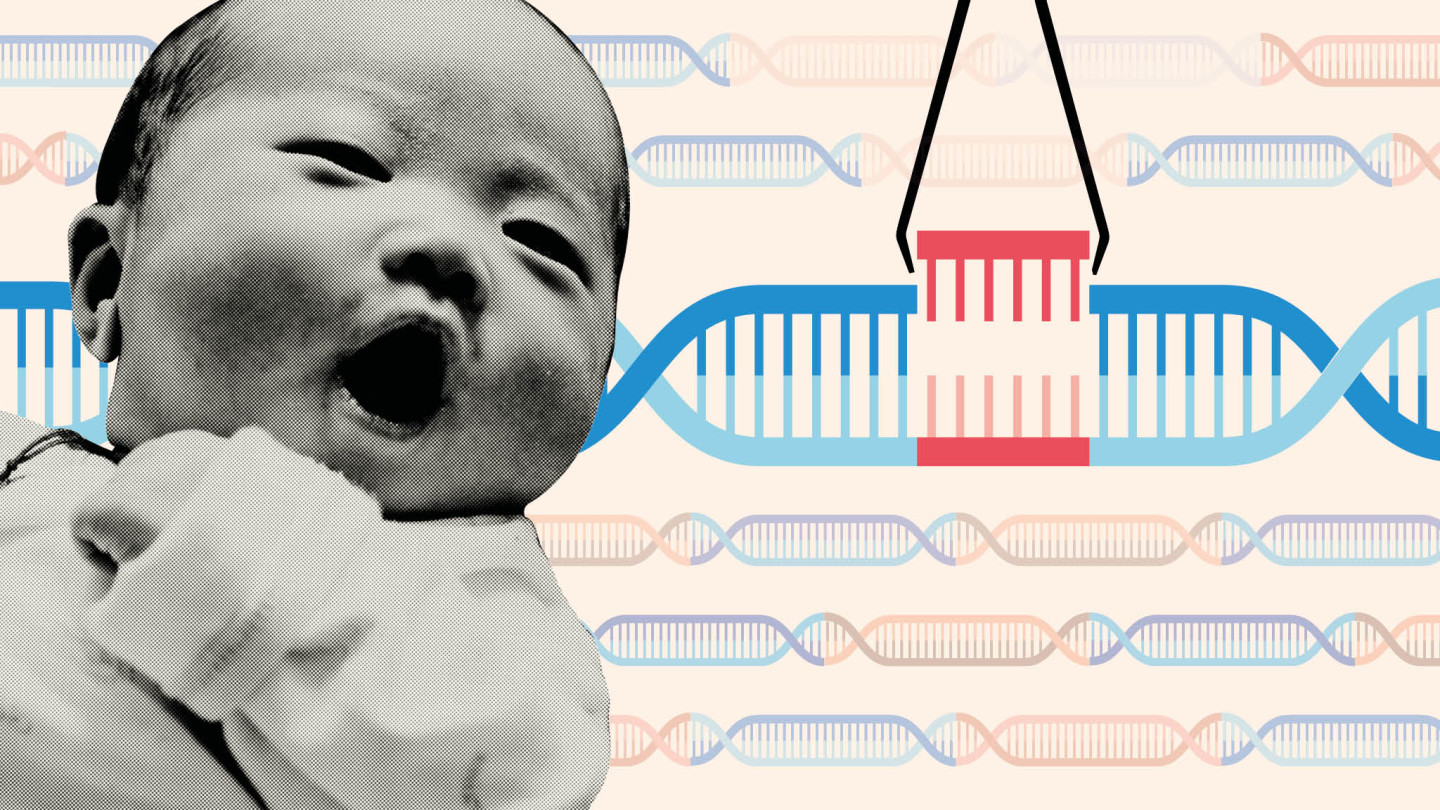The World’s First Gene-Edited Babies Have Been Created: Why the Uproar?
Wait, what happened?
On the eve of the Second International Summit on Human Genome Editing in Hong Kong, Chinese scientist He Jiankui proudly declared on YouTube that he used the gene-editing tool CRISPR-Cas9 to modify the DNA of two embryos to thwart HIV. Jiankui proceeded to discuss how he implanted them in the womb of a woman, allowing her to give birth to twin girls this month. Sounds pretty futuristic to us.
Why is this huge?
To break it down, Jiankui successfully created the world’s first genetically modified humans, leaving not only the entire science community in shock but the entire world as well. As with any life-changing news, people immediately began to split into teams of celebration or disapproval. However, in this case, Jiankui was largely scorned for possibly hindering future advancement and raising distrust in the actions of other scientists. Additionally, may argue that he has put the genetically modified twins at extreme risk, given our lack of knowledge on the matter and the possible consequences gene alteration could have. Lastly, he has enabled such edited gene(s) to be passed onto future generations, which could potentially have a negative effect on society.
What’s so wrong with creating genetically modified humans?
To put it bluntly, a lot of people find this kind of science to be morally fucked. While many scientists cite safety as the uppermost concern when it comes to genome gene editing, there’s a vast range of social, legal, ethical, and economic implications that go into this kind of science as well. These include issues related to genetic determinism and biological discrimination, children’s autonomy and selfhood, disability rights, decisions about the allocation of funds and resources devoted to health care, and the prospect of reinforcing or worsening inequality, discrimination, and conflict. In other words, a lot could go wrong when it comes to playing with genes. Go figure.
According to the National Human Genome Research Institute, due to the strong possibility of off-target effects (edits made in the wrong place) and mosaicism (when some cells carry the edit, but others do not), the risk of creating genetically modified humans is not justified by the potential benefits in doing so. Why? Because said humans could have drastic health issues as a result.
The National Human Genome Research Institute also argued that it is impossible to obtain informed consent since the patients affected by the edits are the embryo and future generations. This makes sense, as any genetically modified child born has the potential to pass their DNA down, as indicated by The Guardian, which states, “Any changes made to an embryo’s DNA would affect all its cells, including the sperm or eggs, meaning that genetic modifications would be passed down to all future generations.” This brings up the question: is it fair to “create” these children in a way they may not give consent to? After all… did any of us give consent before we were born?
Lastly, the National Human Genome Research Institute claimed that genome editing would only be accessible to the wealthy and will increase the already existing huge gap between the wealthy and the poor. This could create classes of individuals defined by the quality of their engineered genome and, according to the Center for Genetics and Society, “... could all too easily lead to a future society of genetic “haves” and “have-nots,” with new forms of inequalities and biological discrimination on top of already existing ones.” Imagine a world in which one’s social class would no longer be defined by their education, income, and occupation, but rather by their genes. Fuck jealousy over your rich friend’s Yeezys, their whole ass DNA is better than yours! Now, this may sound like something straight out of a science-fiction novel, but these are real issues we have to consider as science continues to advance to a place that pushes the boundaries on morality.
Outcome of the experiment?
He Jiankui’s project was immediately shut down by Chinese authorities. In fact, his current location is unknown as he dipped from the scientific conference early. But that hasn’t stopped the scientific community from expressing their thoughts on the matter.
According to William Hurlbut, Senior Research Scholar at Stanford University, "I see it as one of those moments that happens once every few decades… where someone does something that so dramatically changes the landscape that the world will never be the same again." Additionally, Feng Zhang, one of the inventors of the gene-editing technique CRISPR and member of the Broad Institute of MIT, stated, "No one expected that someone would do this experiment on a human embryo," which is what Jiankui just successfully managed. "The scientific community didn't actually know anything about what was going on."
Xu Nanping, China’s vice minister of science and technology, also had a lot to say, insisting that Dr. He appeared to have broken “the bottom line of morality and ethics that the academic community adheres to.” Additionally, many Chinese scientists have criticized Dr. He for his actions, and called his experiment “a huge blow to the global reputation and development of Chinese science.”
Bottom line?
According to the American Council on Science and Health, He Jiankui violated basic bioethical principles. At the end of the day, we have yet to grasp all the effects of editing the DNA of human embryos, and Jiankui refused to see that. The technology is also very new and could potentially lead to many unknown genetic complications later in life. However, even if the risks of implanting a genetically engineered baby were eliminated, is it morally and ethically right to do? Or have we already opened Pandora’s Box…?

